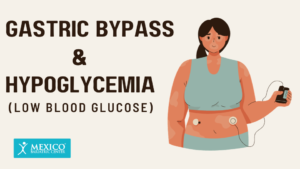A research study done at the University of Cincinnati discovered that blocking certain gut hormone actions will correct post-meal hypoglycemia (low blood sugar) in some RNY gastric bypass (RGB) patients. The study’s findings were featured in the March 2014 edition of the Journal of Gastroenterology. They also are a part of an ongoing effort by University of Cincinnati researchers to better understand how glucose metabolism affects patients of bariatric surgery.
Scholars at UC examine the physiological factors that lead to improving hyperglycemia in patients, especially Type II Diabetes patients. The study’s researchers also study glucose abnormalities in those who suffer from post-op hypoglycemia after gastric bypass surgery.
The study’s lead researcher is Marzieh Salehi, an associate professor in endocrinology, metabolism, and diabetes and a UC Health Physician. She found that gastric bypass is effective at treating obesity and also has an immediate effect on Type II Diabetes glucose. However, they did observe that in a specific group of RGB patients, hypoglycemia was an issue, where too much insulin secretion occurred after each meal several years following surgery.

Study Findings
The study’s researchers found that hyperinsulinemic hypoglycemia in gastric bypass patients often overlapped with symptoms with dumping syndrome, a common symptom post-surgery. Dumping syndrome symptoms have made diagnosing glucose abnormalities difficult in the past. The study found that patients with hyperinsulinemic hypoglycemia have excessive insulin production after eating. Some common symptoms of hypoglycemia include: sweating, dizziness, tingling, fatigue, and a fast heartbeat. All of these symptoms improve after eating carbohydrates (not great for losing weight).
Gastric bypass is the most commonly performed weight loss surgery in the United States. Nearly 700,000 patients have undergone the procedure in the last decade, with about 110,000 procedures done a year since 2003.
The study’s researchers saw that as the condition progresses, it causes symptoms that are consistent with cognitive impairment. Ultimately, patients would pass out without any warning. The study was funded by a National Institutes of Health grant. They focus specifically on blocking Glucagon-like Peptide 1, a gut hormone that is enhanced after gastric bypass surgery.
Study Methodology
24 patients were studied – 9 with recurrent hypoglycemia after gastric bypass surgery, 7 with no symptoms of hypoglycemia, and eight healthy control subjects. All patients went through a mixed meal tolerance test with and without the use of that gut hormone. The study’s researchers found that post-meal blood sugar levels were corrected in all patients, and this change was mediated by lowering insulin secretion in those affected before serious symptoms occurred.
Conclusion
The UC study focused on the treatment of hyperinsulinemia hypoglycemia after gastric bypass surgery as a way to better understand how surgery alters glucose metabolism. At this point, the study’s investigators have found no specific therapeutic option for patients beyond modifying their diet.
